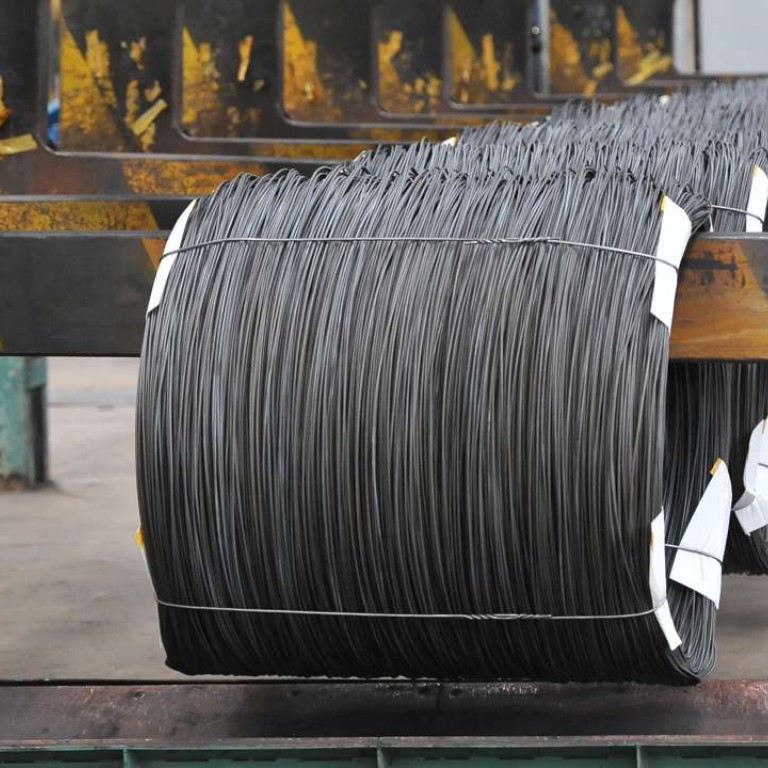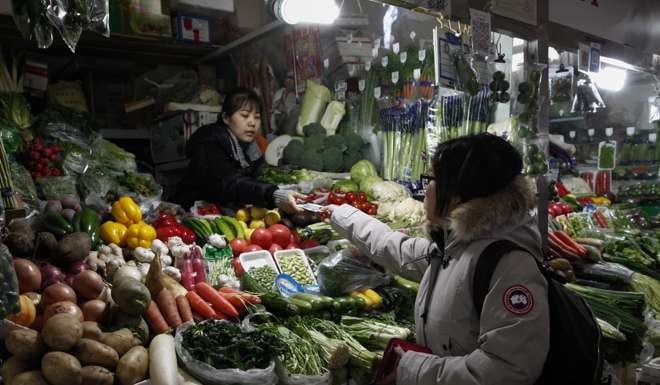
China factory prices rise, fanning fears interest rates will increase
Prices for producers in China’s factories surged last month, increasing the chance that the authorities may have to raise interest rates to curb inflation.
It is the first time factory gate inflation has outstripped general consumer inflation in five years.
The increased costs were largely due to rallies in the price of coal, oil and steel amid increased demand in China’s slowing economy.
The official producer price index jumped 3.3 per cent in November, according to data released by the National Bureau of Statistics on Friday.
That compares with rises of 1.2 per cent in October and 0.1 per cent in September.
The consumer price index edged up 2.3 per cent in November.
A higher reading in the producer price index than the index for consumer inflation creates a dilemma for China’s central bank.
Maintaining low interest rates will discourage investors from keeping holdings in yuan, with the nation’s currency falling in value against the dollar and the government attempting to stop the flow of cash overseas.
Raising interest rates to curb spending and inflation, however, could crush state firms already struggling to pay off huge debts.

The US Federal Reserve has been widely tipped to raise interest rates this month and China’s central bank may also ponder a similar move.
Sheng Songcheng, the former head of the central bank’s statistics department, said at a financial forum in Beijing last week that China could consider a rate hike.
His comments marked the first time people close to Beijing’s monetary policymaking circle have intimated a rate hike was likely in recent months.
Deng Haiqing, the chief economist at JZ Securities, agreed with Sheng’s assessment in research note issued after the inflation data was published.
“The central bank should properly think about an interest rate rise,” Deng wrote.
Julian Evans-Pritchard, a China economist at the research house Capital Economics, wrote in a research note that China was now a source of global inflationary pressure rather than of deflation as many had previously feared.
China’s producer price index rise comes after the figures ended a 54-month decline in September.
Coal prices surged 28.6 per cent last month and the cost of ferrous metals jumped 22.6 per cent.
“The PPI is likely to continue the rise in year-on-year terms and may peak at about four per cent in the first quarter next year,” said Yan Ling, an analyst at China Merchants Securities in Shenzhen.
The surge in producer prices may also have been fuelled by factors such as Beijing’s efforts to shut down coal and steel producing plants.
Tim Condon, chief Asia economist at ING in Singapore, said in a research note that producer price inflation may lose steam if the government’s crackdown on excess production capacity doesn’t spread beyond steel and coal, the two sectors targeted by Premier Li Keqiang.

